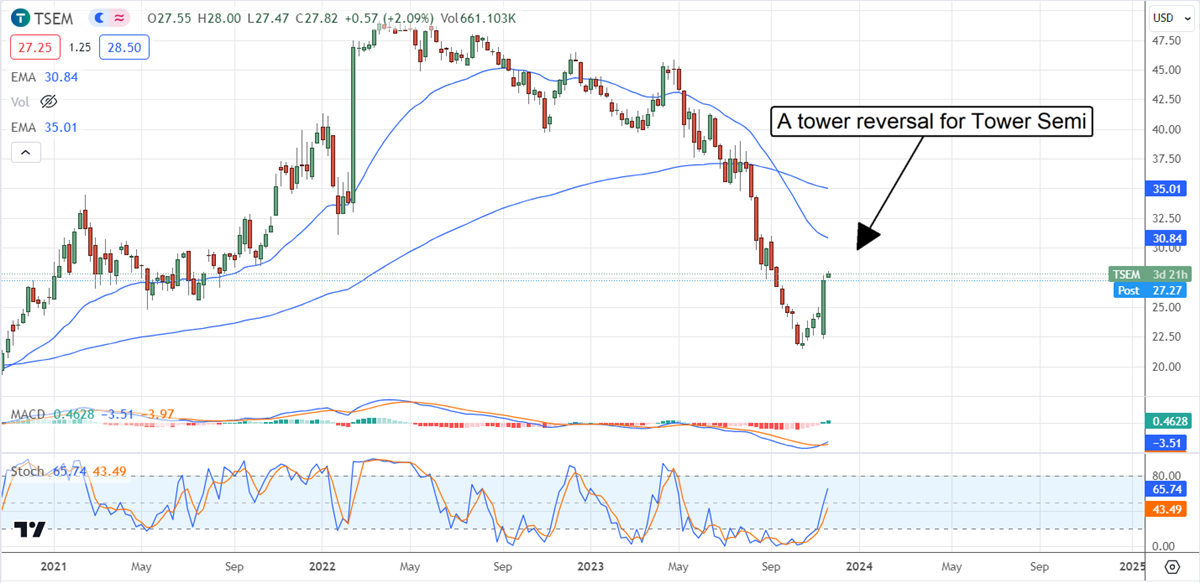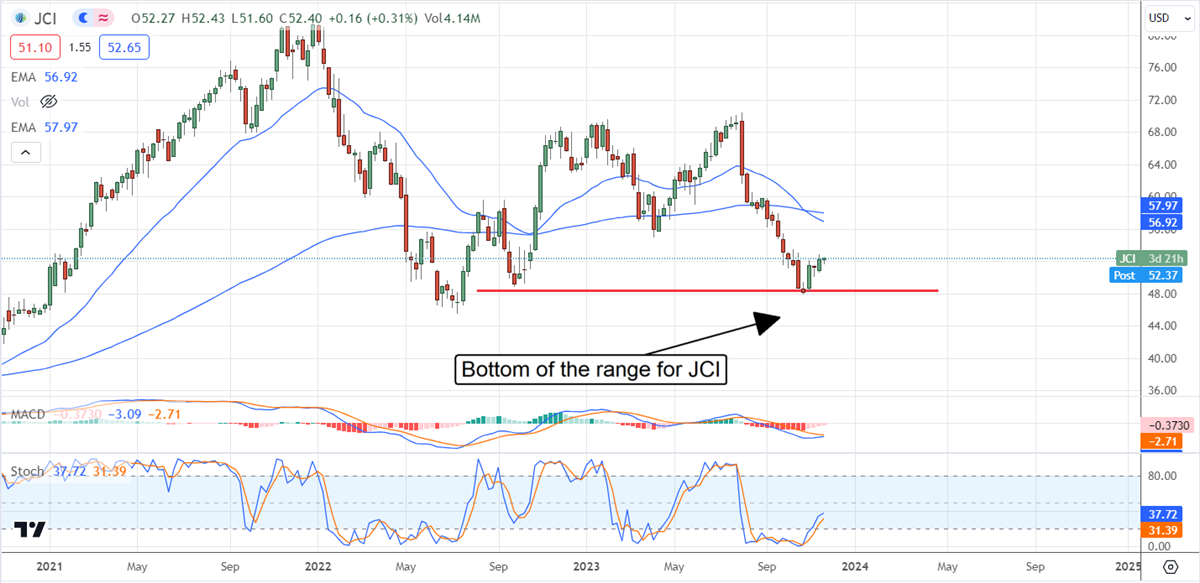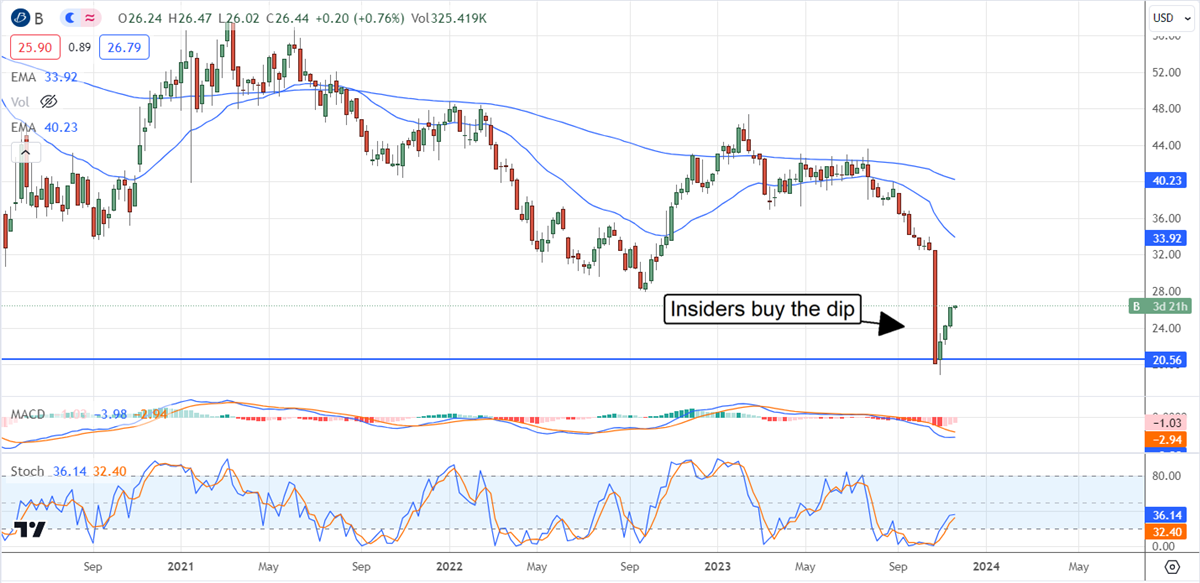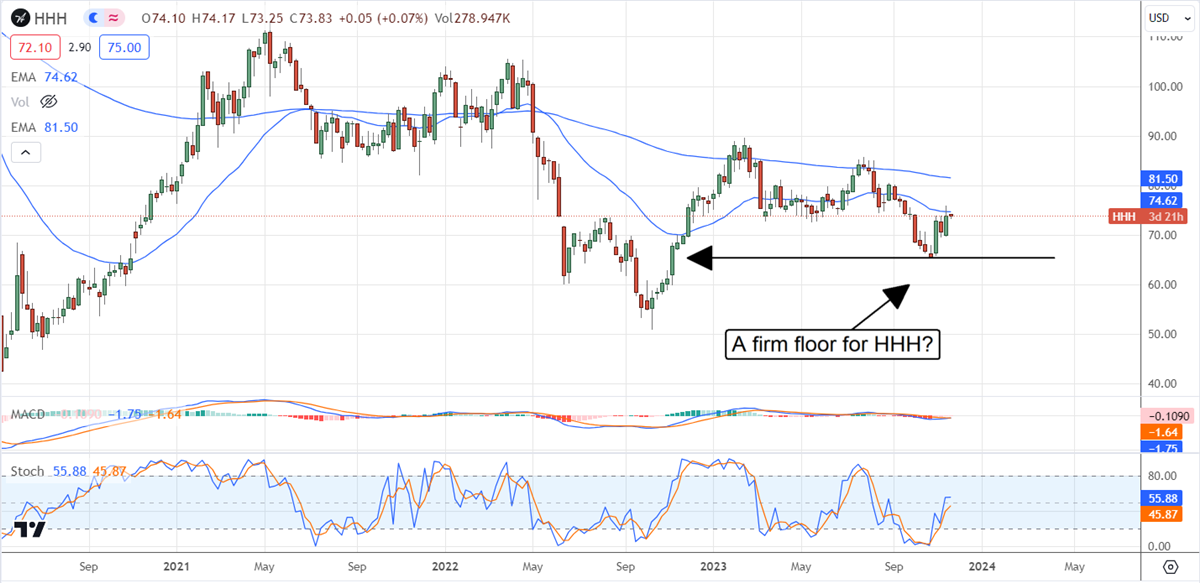
Value is where you find it. Today, you can find it with Tower Semiconductor Ltd. (NASDAQ: TSEM), Johnson Controls International PLC (NYSE: JCI), Barnes Group Inc. (NYSE: B) and Howard Hughes Holdings Inc. (NYSE: HHH).
These companies trade at a significant discount to the analysts' target range and come with a healthy outlook for capital return. The last of these stocks faces a minimum double-digit upside relative to the analysts' lowest price target, with a 30% to 50% gain in store for most at the consensus.
Tower Semiconductor wins with Intel
Tower Semiconductor scored a win when it could not close a deal to merge with Intel. The failure resulted in a large termination fee paid by Intel and, surprisingly, a new deal better for shareholders. Instead of getting wrapped up in Intel's giant footprint, Tower Semiconductor remains a standalone operator and will become one of Intel's foundry clients. It's a win for both as they can leverage the others' strengths and grow businesses.
Tower analysts rate the stock a consensus "buy" with a consensus near $36.50 and a range of $35 to $38. The $35 low price target is about 25% above the current price action, which is being led higher by the chatter. The deal with Intel should accelerate revenue earnings growth as early as 2025 through advancing technologies. Tower Semiconductor is a specialist in analog semiconductors used in signal processing, important to applications such as the IoT, autonomous driving and AI.

Johnson Controls International is a deeply undervalued issue
Johnson Controls International's stock price is suffering from slowing, as-expected growth, which is precisely the kind of growth that risk-averse investors should like to see, especially when that growth is trading 10% below the analyst's lowest stock price target and a value to peers at only 15x earnings.
The deep value has the dividend yield up near 2.85%, another attraction, and there is some expectation for distribution growth. The company has only increased the payout over the last 12 years but not annually, and there is sufficient room in the cash flow to do so.
Johnson Controls could produce a better-than-expected report in early December. Results in Q2 were slightly below expectations, with mixed data trends, so analysts lowered estimates. The analysts still expect mid-to-high-single-digit revenue growth and solid margins, which should support the market at these prices.
The stock has already corrected 30% from recent highs, pricing in the assumed weakness, and it sits on a critical support level where a rebound could quickly form.

Insiders buy the dip in Barnes Group
Barnes Group shares are down after a weaker-than-expected quarter with 15% top-line growth and unexpected margin pressure. The unexpected results shaved about 40% off the stock price, but the bottom appears to be in.
The market is bouncing from a 10-year low, with analysts holding fast to targets well above that level. The analysts covering this stock trimmed their targets substantially but still see it trading higher than now. The minimum is about 10% upside with a chance of 26% at the consensus.
Notably, Barnes Group insiders bought the stock shortly after it bottomed and helped to propel it higher.
Five insiders made six transactions, and the CEO bought twice, raising its combined holdings to 5.2%. Institutions are also nibbling on this stock; they own about 86%. Barnes Group's dividend is reasonably safe, with a sustained regular payment history and a slow payout ratio. The stock yields about 2.45%, with shares near $26.50.

Howard Hughes Holdings activist keeps buying shares
Howard Hughes activist investor Bill Ackman and Pershing Square Capital Management continue to buy shares. The firm's holdings topped 35% with recent purchases and have the company on track to retain control of the board if not gain controlling interest of HHH. Regardless, Howard Hughes Holding is on track with its plans to unlock shareholder value.
The company completed its restructuring and plans to spin off non-core assets in early 2024, allowing it to focus on its high-end commercial and residential real estate portfolio, generating the bulk of profits.
It's getting close where recurring income and profit from sales can self-fund new development. The analysts rate the stock a "buy" and view it as a deep value trading at a 20% discount to the low end of the range.


